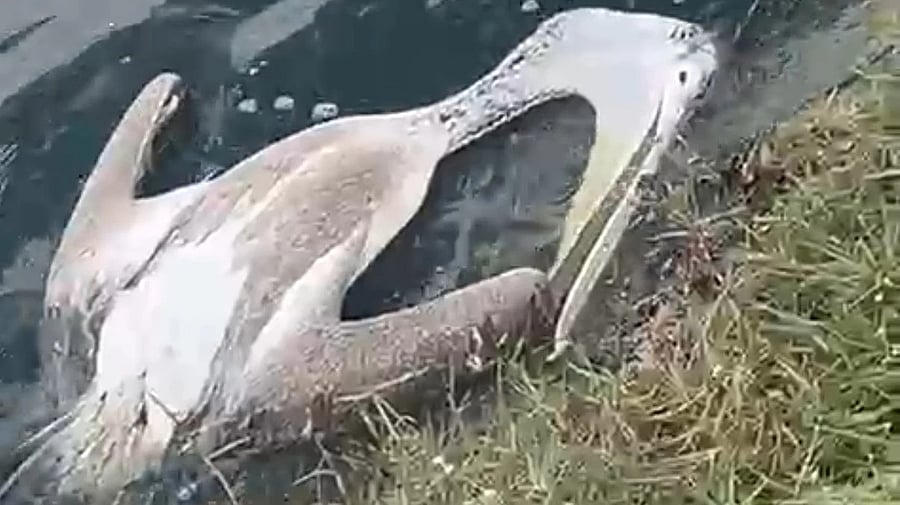
Bengaluru: After hundreds of fish died at Doddagubbi Lake, residents are now reporting that birds are dying in the water and along the walkway.
At least five birds have been found dead in the past 10 days, residents said.
A resident of Unnati Enclave Layout said trouble began in mid October when bubbles appeared in the water, followed by hundreds of dead fish. Birds have since been found dying in the lake and near its edges.
Visitors attempted to rescue distressed birds, but failed. Volunteers from the Avian and Reptile Rehabilitation Centre (ARRC) are monitoring the site.
“When the situation at Doddagubbi Lake was reported, we sent a team member to assess the site. No dead birds were found during the initial visit, but the water was visibly discoloured. Over the past week, we rescued a Spot-billed Pelican from the lake that appeared lethargic and weak. It did not survive. On Tuesday, a Black-crowned Night Heron was reported, and our team is still assessing its condition,” a representative from ARRC said.
ARRC is compiling field data and may approach accredited laboratories for water, fish, and bird toxicity tests to identify the cause of the die-off.
Residents contacted the Karnataka State Pollution Control Board (KSPCB), but said they were directed from one official to another. The agency has not inspected the lake.
Leachate contaminates lakes, say locals
Members of the Chikkagubbi gram panchayat alleged that waste dumping near Kannur by the Bangalore Solid Waste Management Limited (BSWML) is polluting waterbodies in the region. They said leachate from the dumping site is flowing into nearby lakes, triggering mass deaths.
“We have written to every official and also held a protest to prevent such dumping, but to no avail. The Chikkagubbi Lake is completely contaminated and now the Doddagubbi Lake is suffering,” said Ramesh Gowda, a member of the Chikkagubbi gram panchayat.
He said the leachate is seeping into and contaminating groundwater as well.
What causes fish & bird deaths in lakes?
Low dissolved oxygen
Algal blooms from nutrient pollution and sewage reduce oxygen levels. Fish suffocate, and birds feeding on them perish.
Sewage & chemical pollution
Toxic effluents and untreated sewage can poison fish and the birds feeding on them.
Ammonia build-up
Dead fish increase ammonia levels, turning stagnant lakes lethal.
Sudden weather & water changes
Rain after dry spells wash pollutants into lakes. Cloudy days reduce photosynthesis, pushing oxygen levels down and triggering mass fish deaths.
